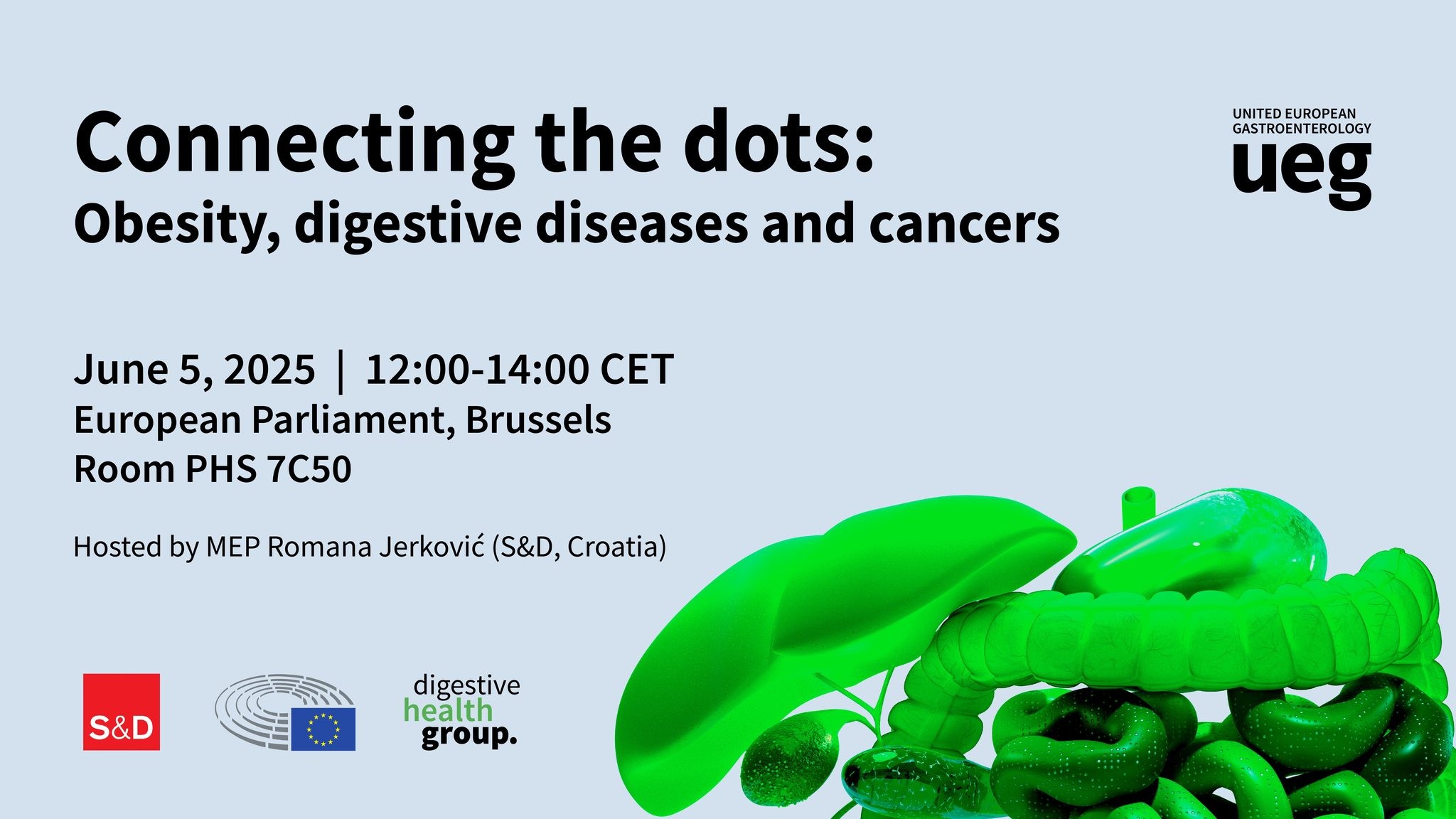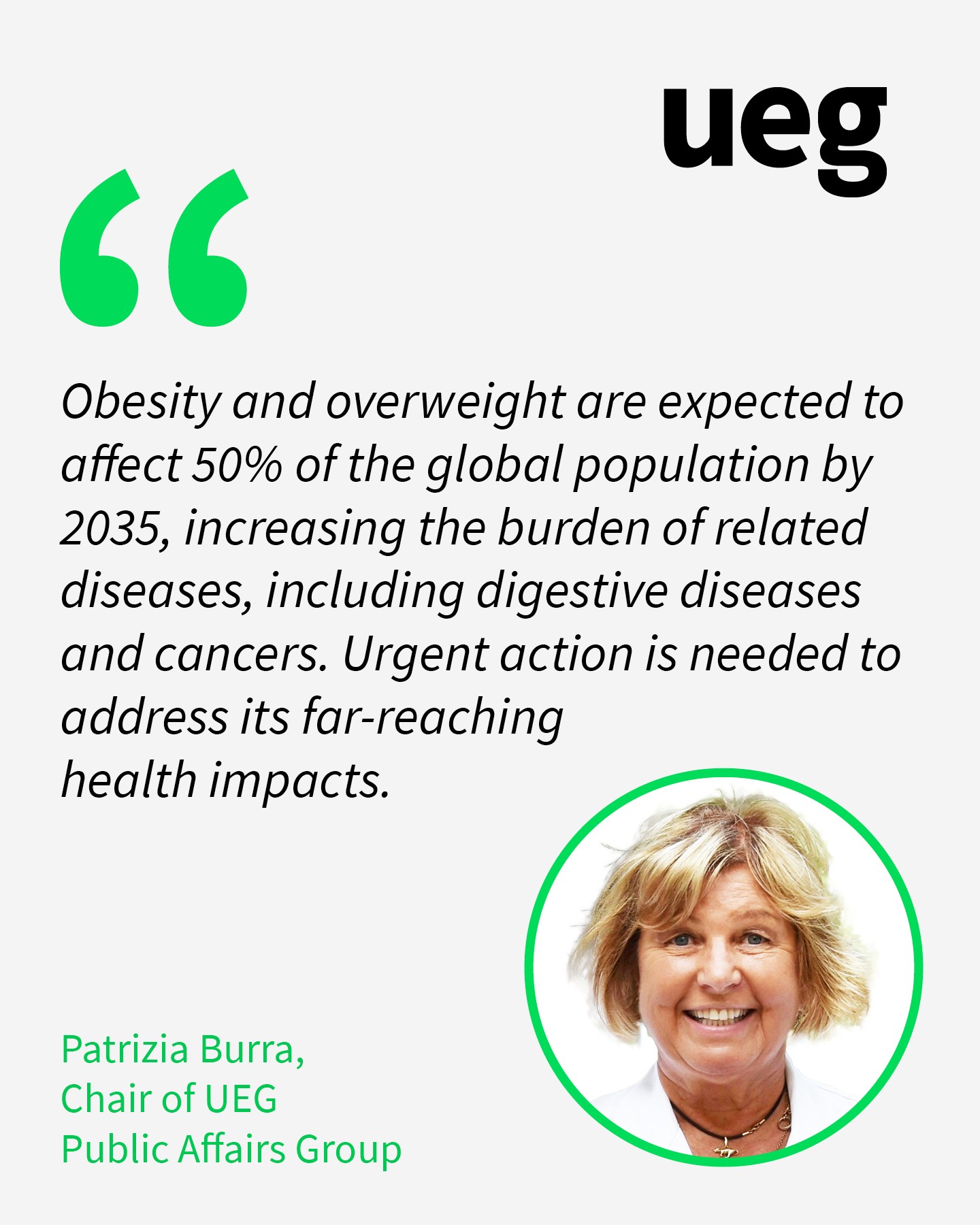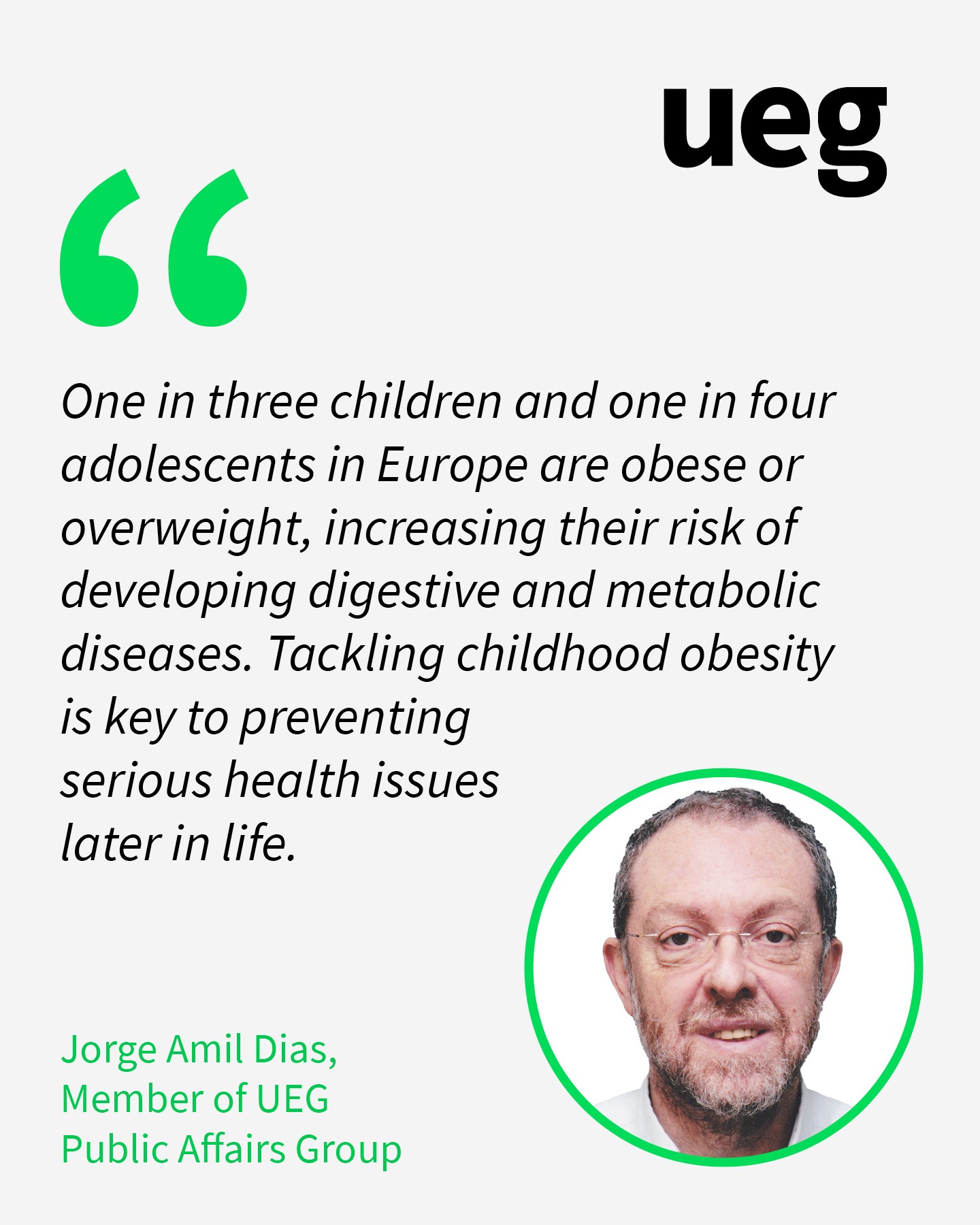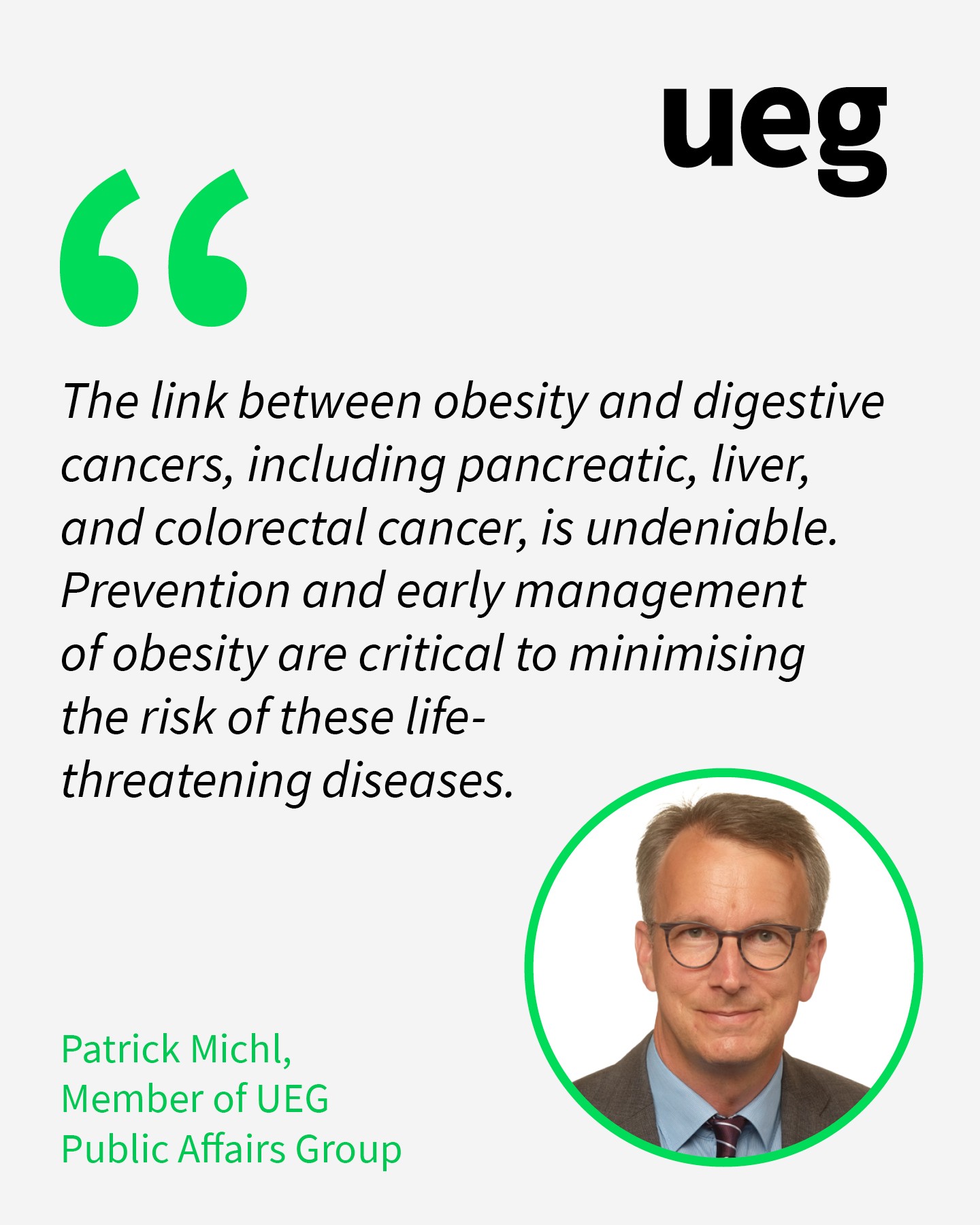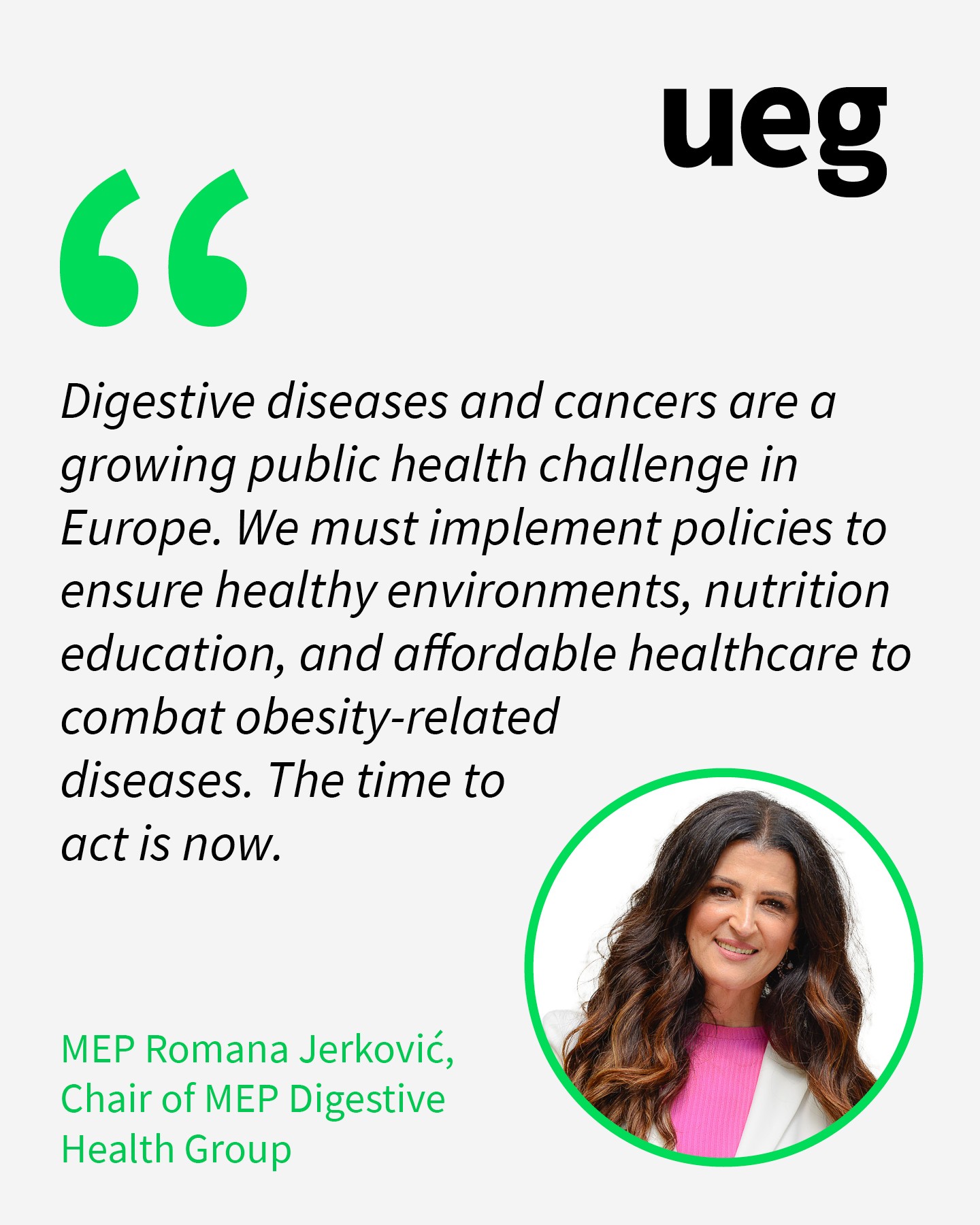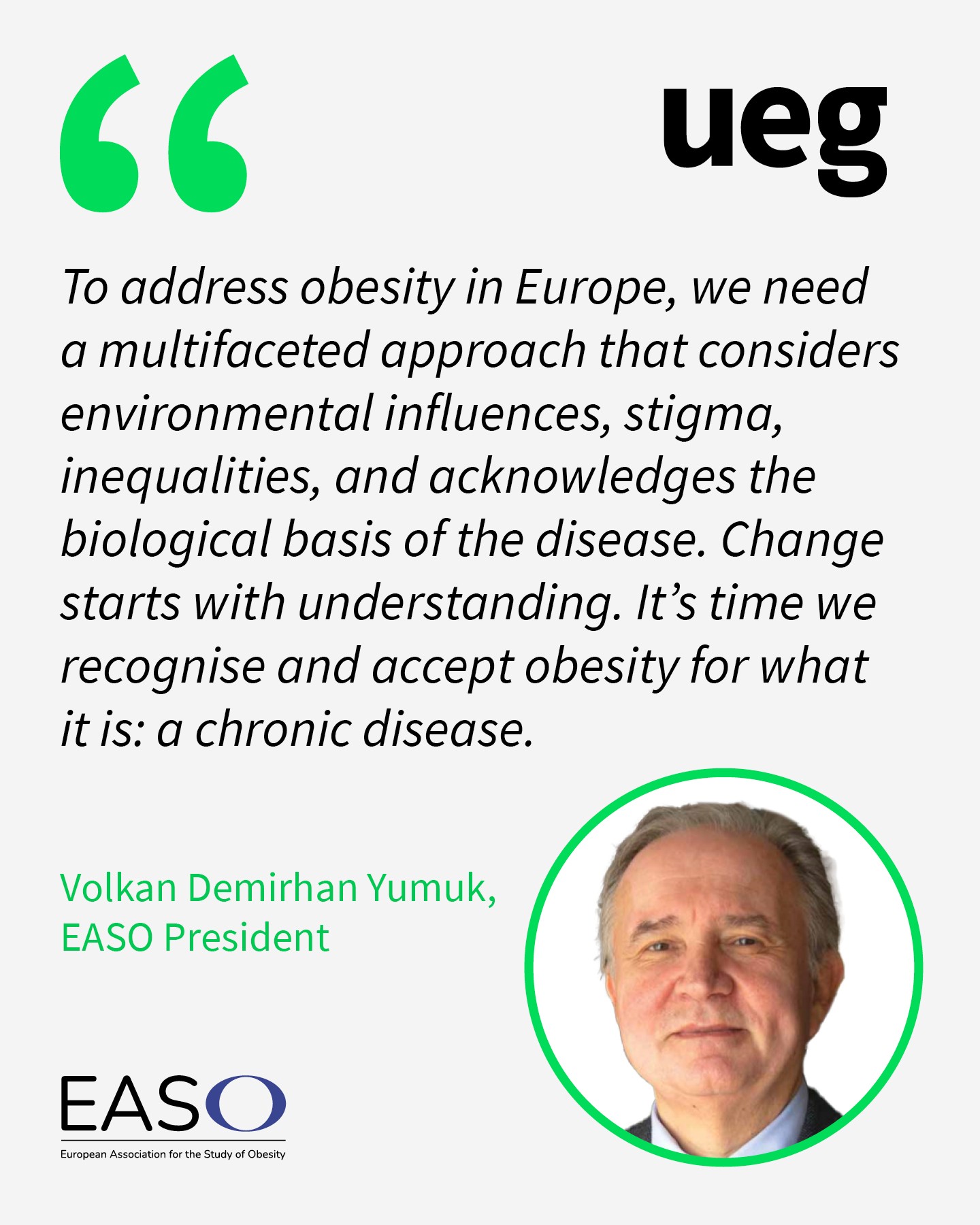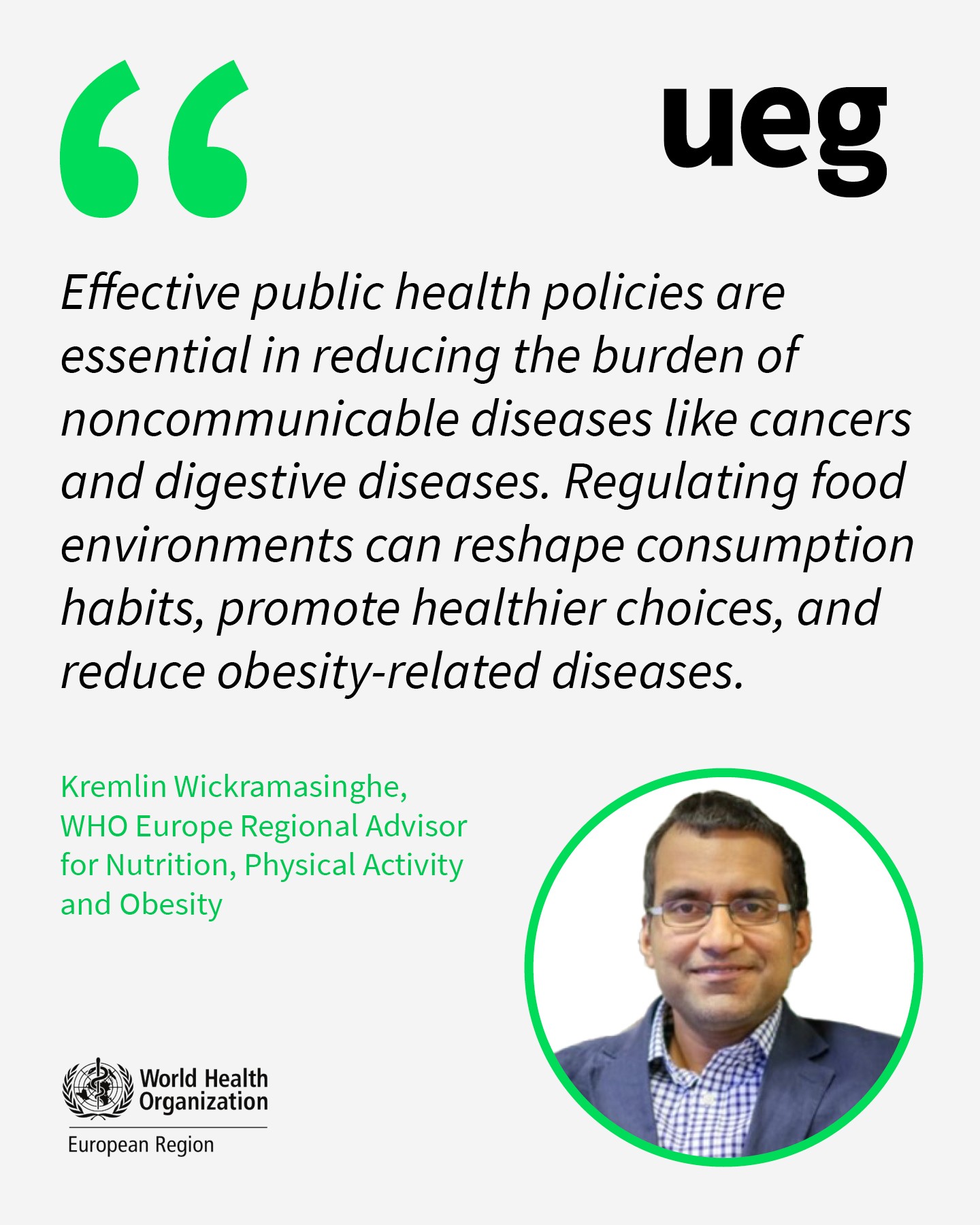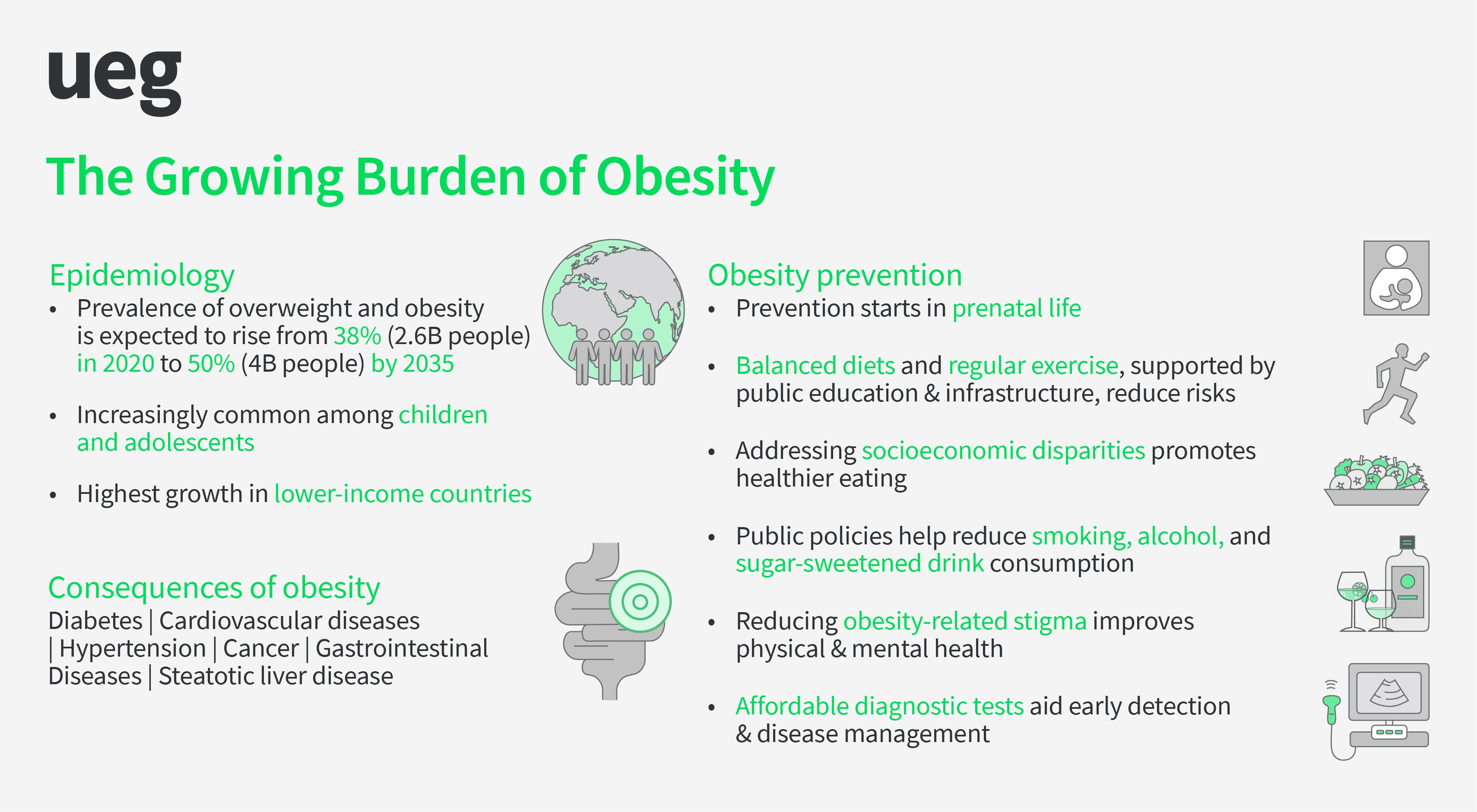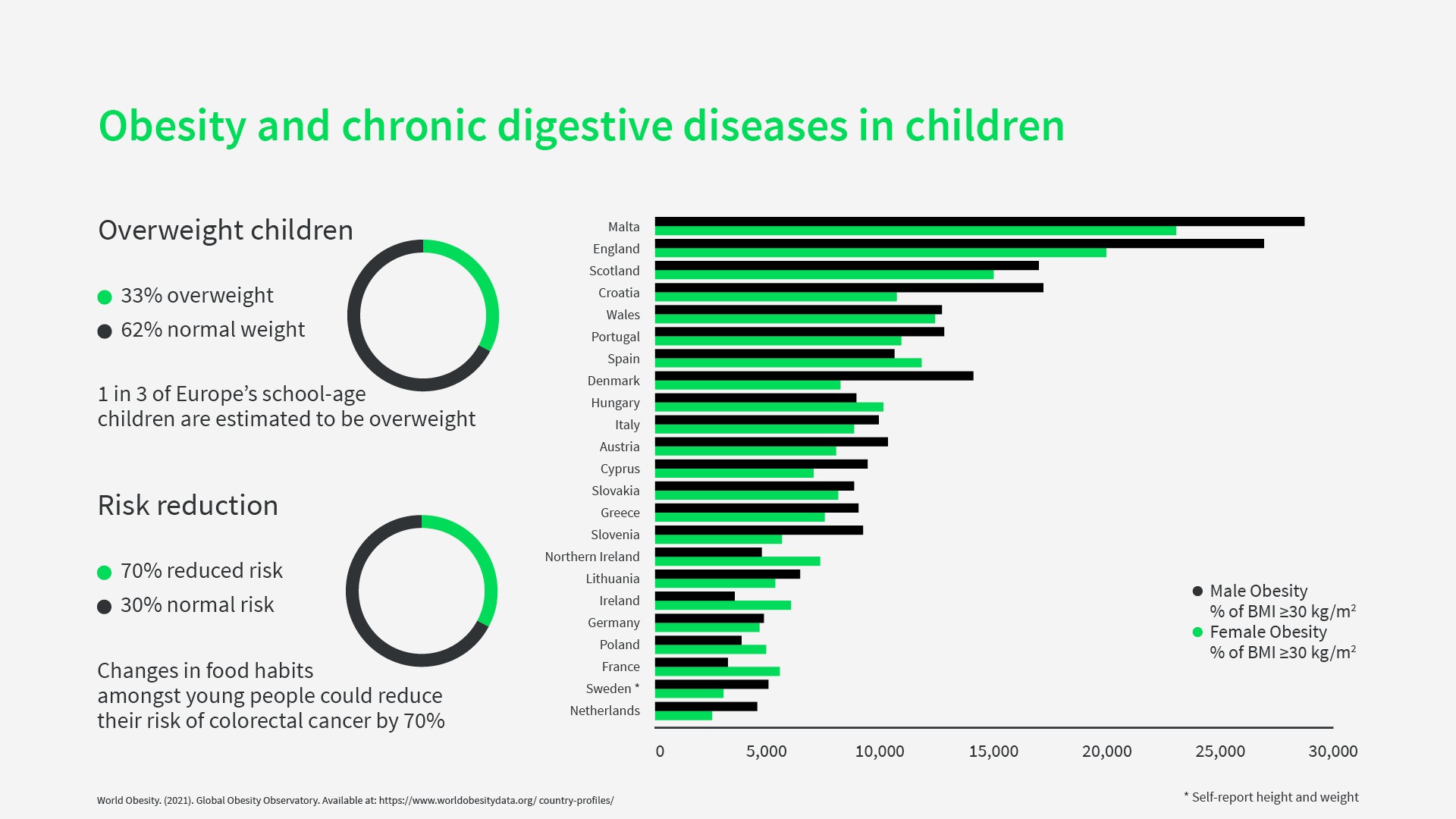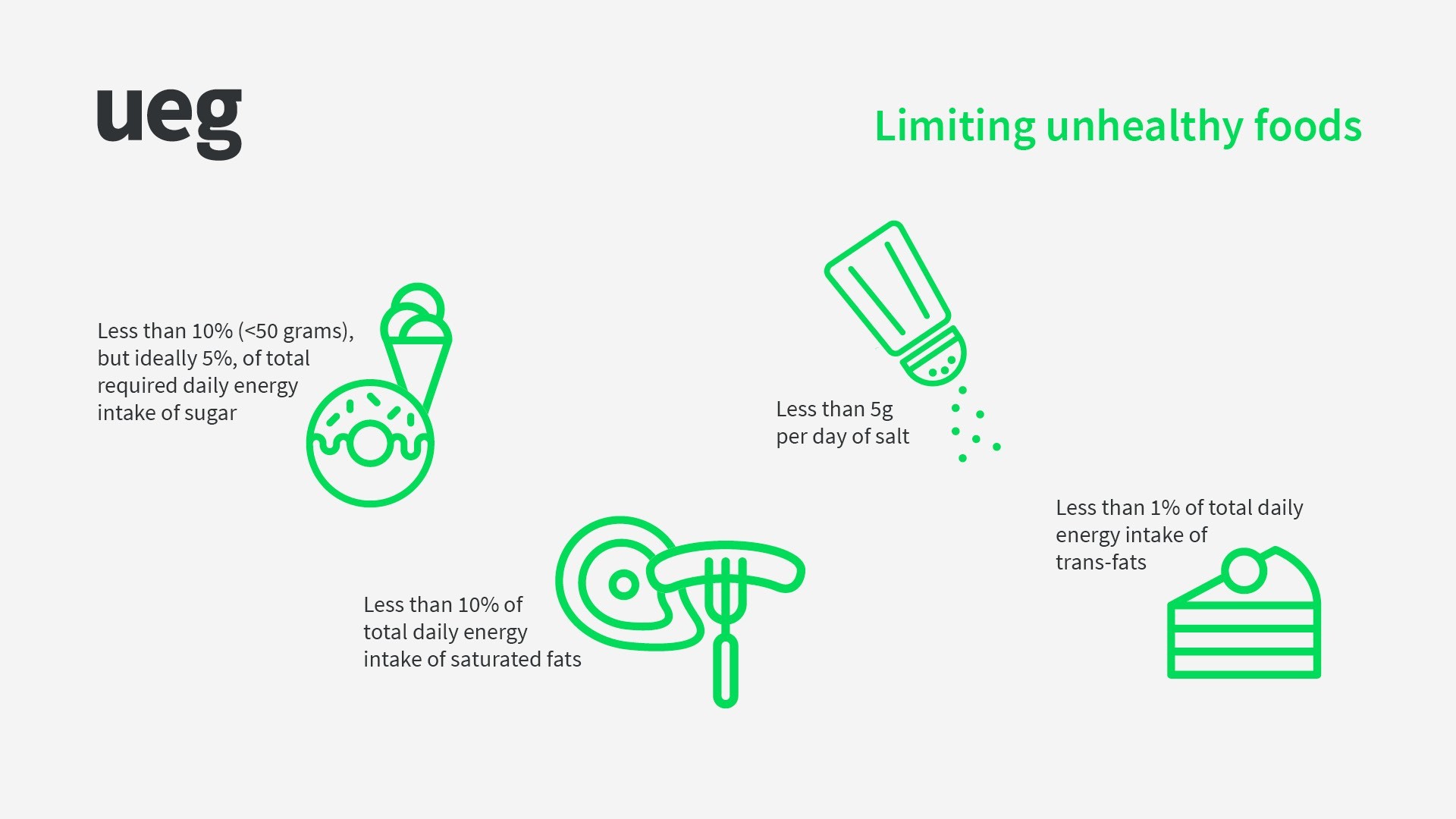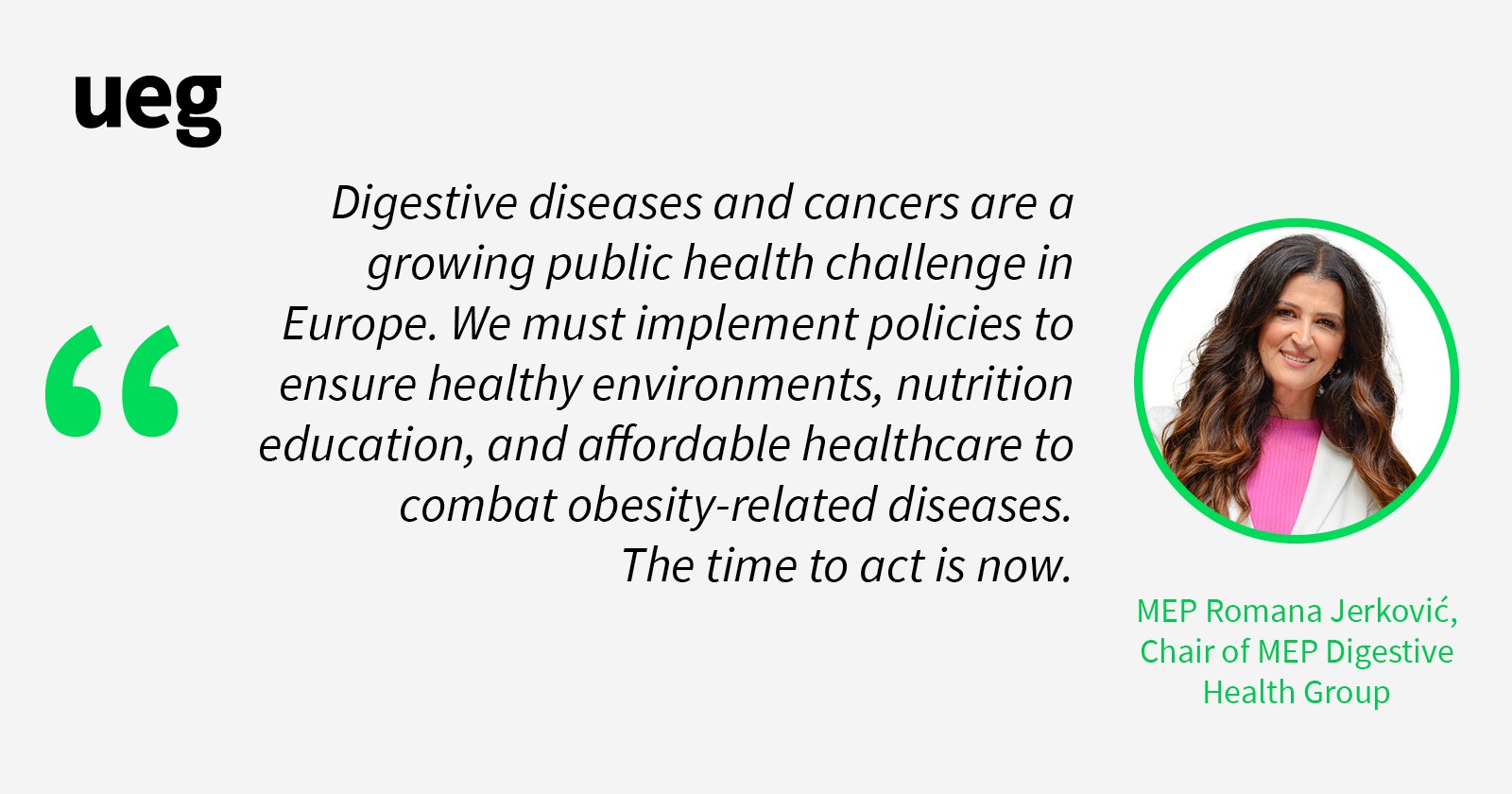On May 29th each year we celebrate World Digestive Health Day!
Each year, the World Gastroenterology Organisation leads World Digestive Health Day to raise awareness about digestive health. This year's theme, “Your Digestive Health: Nourish to Flourish,” emphasised the vital role of digestive health in overall well-being.
Interested in learning more?
Leading up to our Policy Event at the European Parliament on June 5, we dedicated the entire month of May to raising awareness around obesity and digestive health. With global obesity rates on the rise, our campaign explored the critical link between obesity, digestive diseases, and cancers, highlighting key policy actions to address this growing public health crisis.
Key messages
Overview
This year’s DHM campaign will touch upon four major themes:
Obesity and digestive health – Childhood obesity – Prevention and treatment – Shaping the future
Obesity and digestive health: The scale of the issue
The obesity epidemic is one of the most significant public health challenges that Europe is currently facing. Obesity rates have more than doubled in the last 40 years – over half of the EU’s adult population and nearly one in three children in the WHO European region are overweight or obese. Worldwide, obesity and overweight are expected to affect 50% of the population by 2035, highlighting the urgent need to address its far-reaching health impacts.
Childhood obesity: A generation at risk
Overweight and obesity are growing concerns among children and adolescents, posing a significant risk for digestive and metabolic diseases later in life. In the WHO European region, alarming rates are seen in the 5-9 age group, with one in eight children (11.6%) living with obesity and nearly one in three (29.5%) being overweight (including obesity). Metabolic dysfunction-associated steatotic liver disease (MASLD), a consequence of adolescent obesity, increases the risk of developing liver cirrhosis.
Prevention and treatment: Overcoming the obesity crisis
To combat the rising incidence of obesity and overweight across Europe, there is an urgent need for preventive and therapeutic strategies at both individual and public health levels. Lifestyle changes, pharmacological therapies and bariatric surgery are all part of the solution.
Explore our updated Position Paper on Obesity & Digestive Health to learn more:
Shaping the future: Policy solutions for a healthier society
From food reform and front-of-pack labelling to school-based education and cross-sector collaboration, obesity prevention must start early and take a holistic approach. By tackling obesity through multiple lenses — education, healthcare, policy, and research — we can drive meaningful, lasting change.
Read our policy recommendations, focused on four priority areas for action: unhealthy diets, alcohol and tobacco use, and physical inactivity.
Get involved
Our campaign does not end here!
We encourage you to share this page within your network throughout the month of May. Search for #DigestiveHealthMonth on our social media channels to find related content and follow the discussions!
Have questions? Contact us at .
